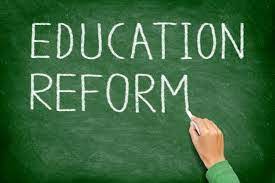Recently, the Inter Board Coordination Commission (IBCC) convened a high-level conference of the top educationists that was attended by Vice-Chancellors of Universities, Chairman of different Boards of Education from across the country, high-ups from the education ministry, academicians, teaching faculty and students.
The theme and purpose of the conference was the evaluation of Examination and Assessment Practices in Pakistan. While addressing the gathering of top brand educationists, the Caretaker Federal Minister for Education and Professional Training stressed the need for a paradigm shift in educational examinations and assessment systems to align them with the requirements of the modern era.
Education is the most important element in the overall national life of any nation. A modern and competitive education system is of utmost importance to provide state-of-the-art education to school and university students so they can compete with the current day challenges effectively.
Meanwhile, examinations and assessments are the major pillars of the educational system that not only set standards but gauge the talent of the students and teach them practicability and implementation of their knowledge in real life.
nfortunately, education and literacy had neither been a priority for the past governments nor it was important for the civic groups who considered education as a tool to boost their political legacy and garner votes from the public.
Pakistan’s education system faces various challenges including inadequate funding, a lack of qualified teachers, outdated curricula, socio-economic disparities and access to education, and inadequate infrastructure, while gender inequality also massively contributes to low literacy rates and educational depletion. Meanwhile, a lack of leaders’ vision and no attention from the government resulted in educational degradation in the country. The private education industry was groomed rapidly because public schools were using century-old teaching practices that emphasized memorization of the lesson instead of concept-based study, formative assessment and practical implementation of knowledge gained by the students. That’s why our educational system is nonproductive and Pakistan is behind in current day Research and Development (R&D), modern technologies, and the latest innovations.
Several past governments undertook numerous steps to transform the education system by introducing major reforms, uniform curricula, teachers’ training and nationwide standardised examination and testing systems, but no pivotal change could so far be implemented due to recurrent disruption and unsustainability in government policies. Historically extensive research and the advent of modern technologies and educational scenarios around the globe have transformed rapidly and it has become essential for Pakistan to bring necessary changes in its examination and assessment systems accordingly.
The use of digital technology and modern techniques in the examination and testing process could help improve the educational system in the country. There is a need for curriculum planning, continuous monitoring, data analytics and assessment, digitization of curriculum, setting up question banks, and data integration. The Inter Board Coordination Commission (IBCC) is the most suitable platform with representation of all the educational boards that review proposals and offer recommendations.
The Universities and the private sector must also be taken on board to make unanimous decisions to ensure uniformity in the educational system. The Federal Board has recently introduced a concept-based study and assessment system, hopefully, more comprehensive and broad-based reforms will be grasped into the country’s education system that sufficiently competes with the world standards and satisfactorily fulfils the needs of our future generations.







